“The weather is perfect today, so we’re heading out on a boat ride. Meet us at the harbour in 15 minutes if you want to join,” read the message from Marion, a German-Venezuelan I’d met just yesterday. She had been introduced to us by the boatman who remarked on her striking blue eyes—which was exactly like Noura’s, the Arabic-speaking Austrian girl I was traveling with.
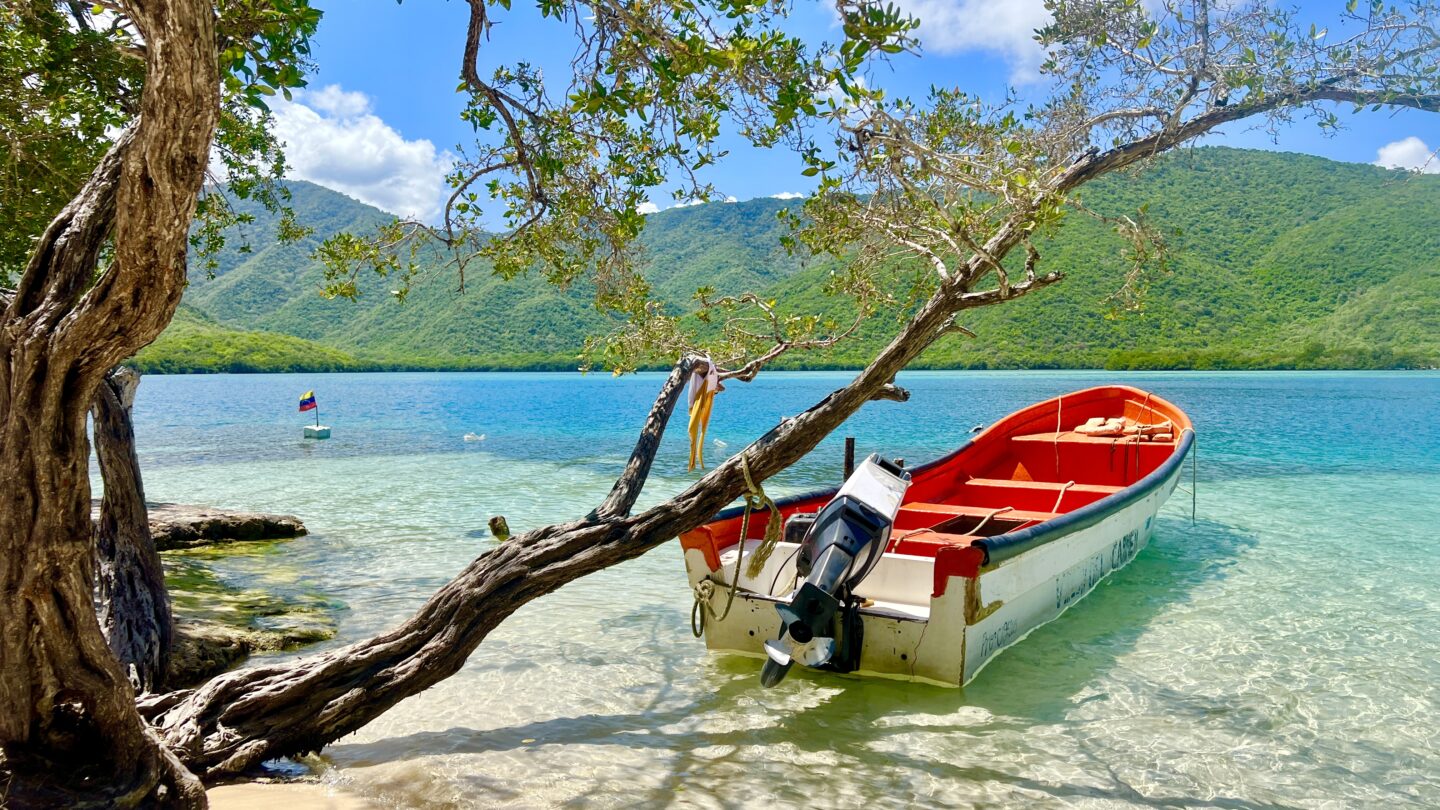
I had met Noura just two days before at the bus station in Valencia where we caught the first bus to Maracay and onwards to Choroni. I decided to hastily leave the ghost town Chichiriviche, after an exhausting eight-hour journey from Caracas.
Our connection formed thanks to Couchsurfing where I had posted my travel dates for Venezuela. This little fishing village, Choroni, tucked away behind mountains on Venezuela’s northern coast, was accessible only through a winding mountainous route.
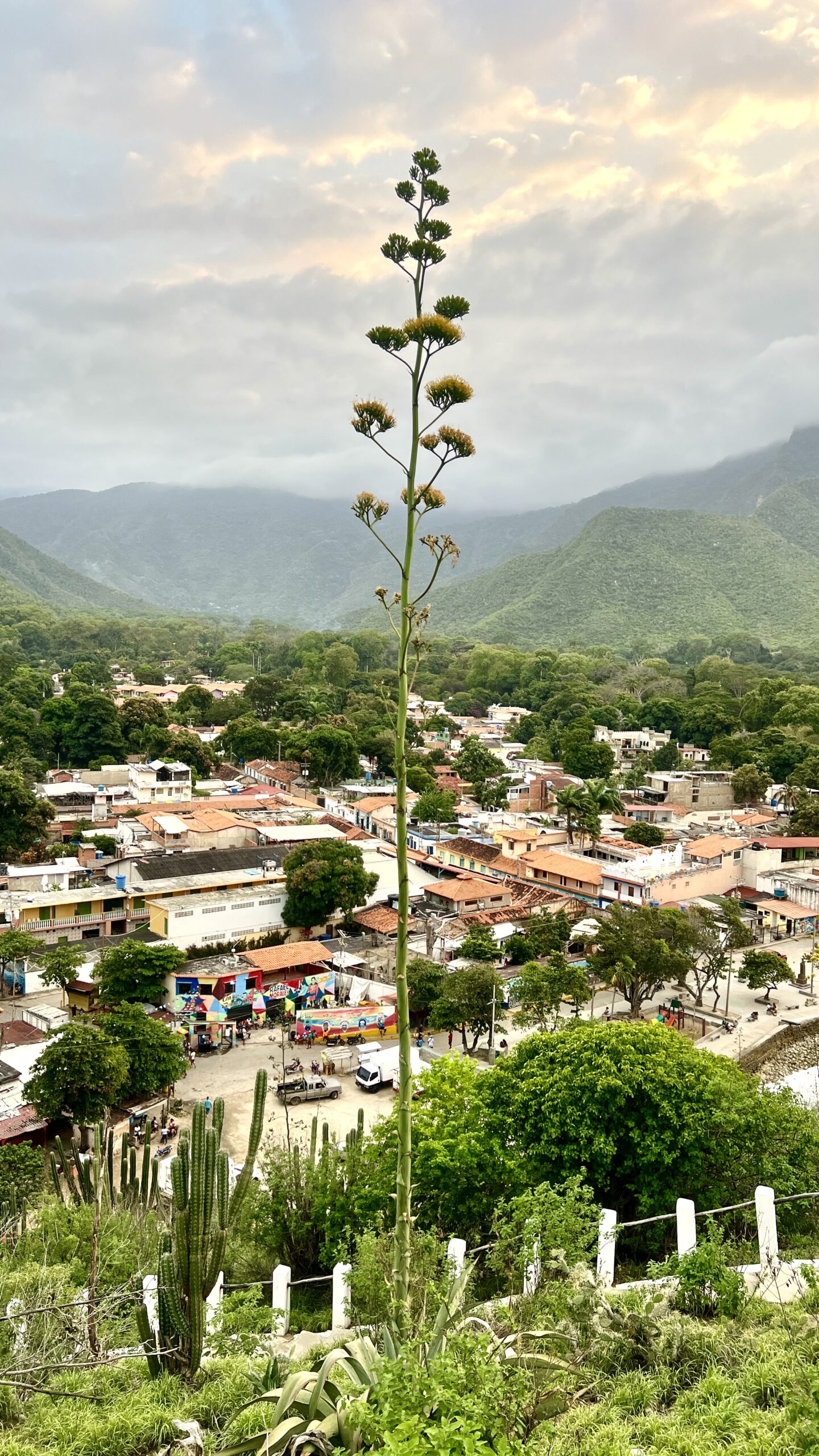
Arriving in laid-back Choroni was like stepping into a vibrant painting—colourful houses lined the tiny streets, and a short hike up to a large cross offered mesmerizing views and a perfect sunset spot of Venezuela’s breathtaking coastline. Choroni was one of the earliest settlements established during the Spanish colonial era in Venezuela.
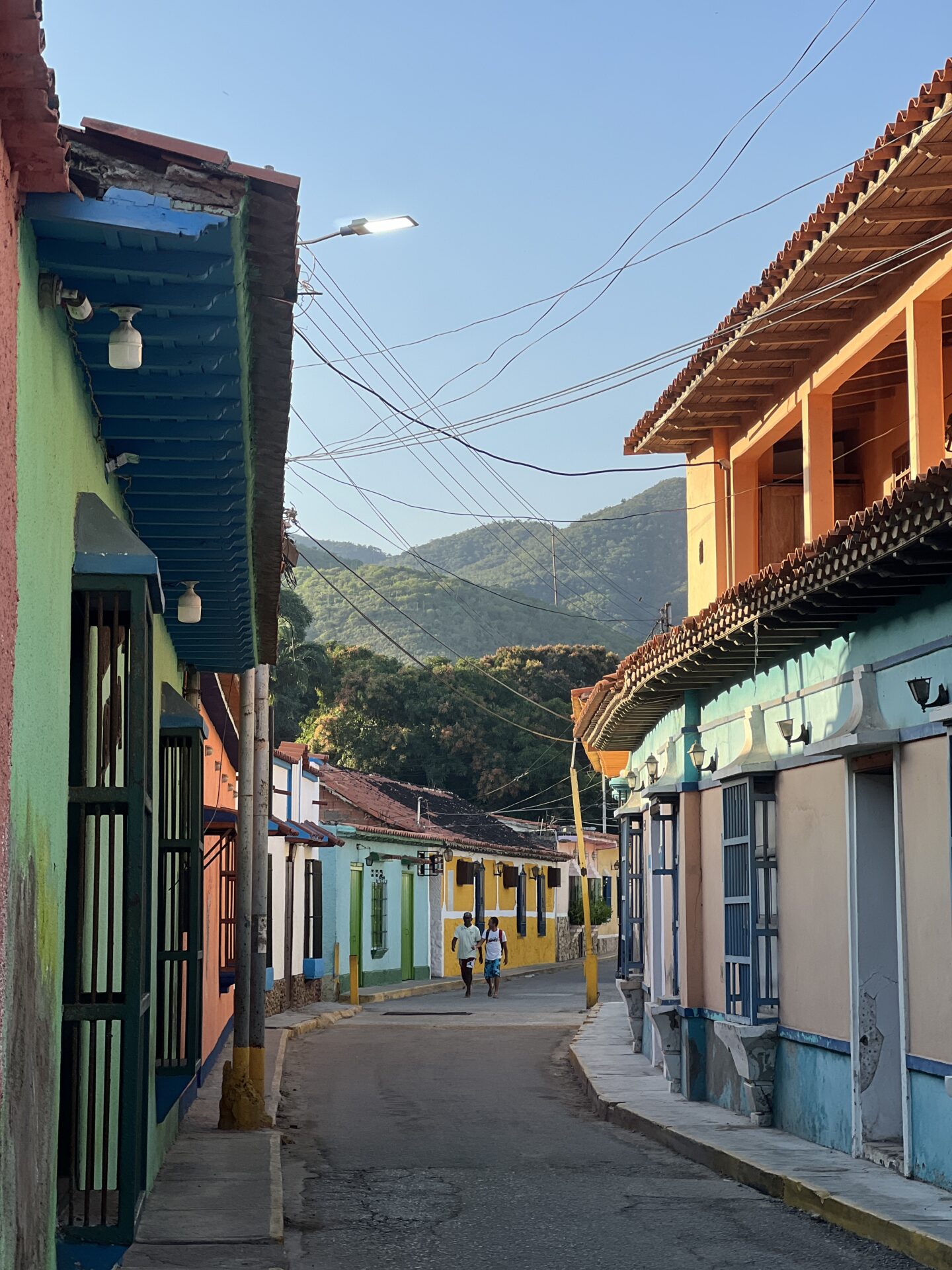
I remember vividly sitting down in front of our posada speaking to Ulrik, my partner, on the phone when suddenly I noticed a man with a huge swordfish walk past me.
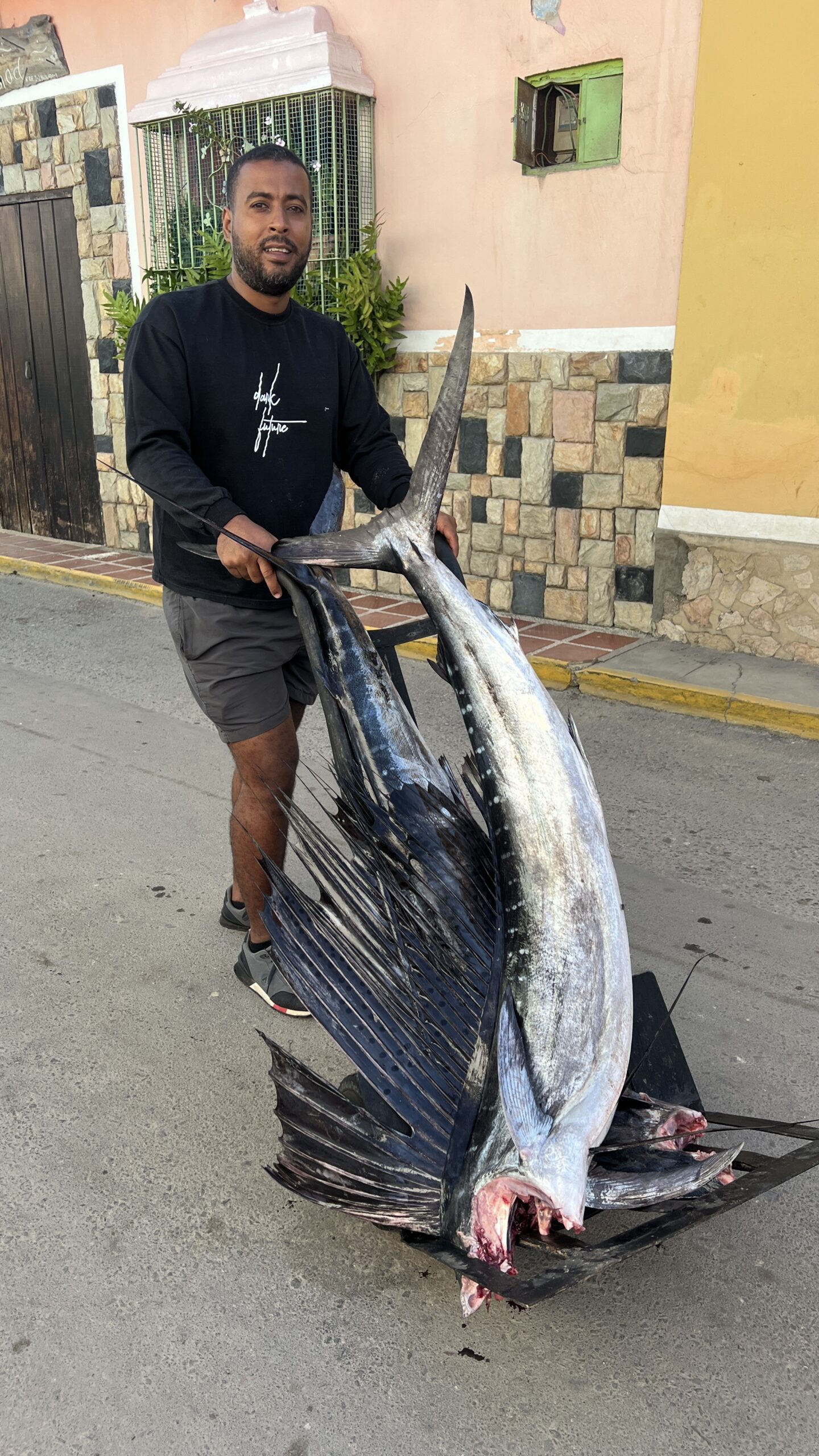
Once at the harbour, Marion ushered us into a boat with her cook and two boatmen she had known since childhood, as their families had long worked for hers. We set off, skimming past Choroni’s stunning beaches in the state of Aragua, which boasts Venezuela’s longest coastline where mountains dramatically meet the sea.
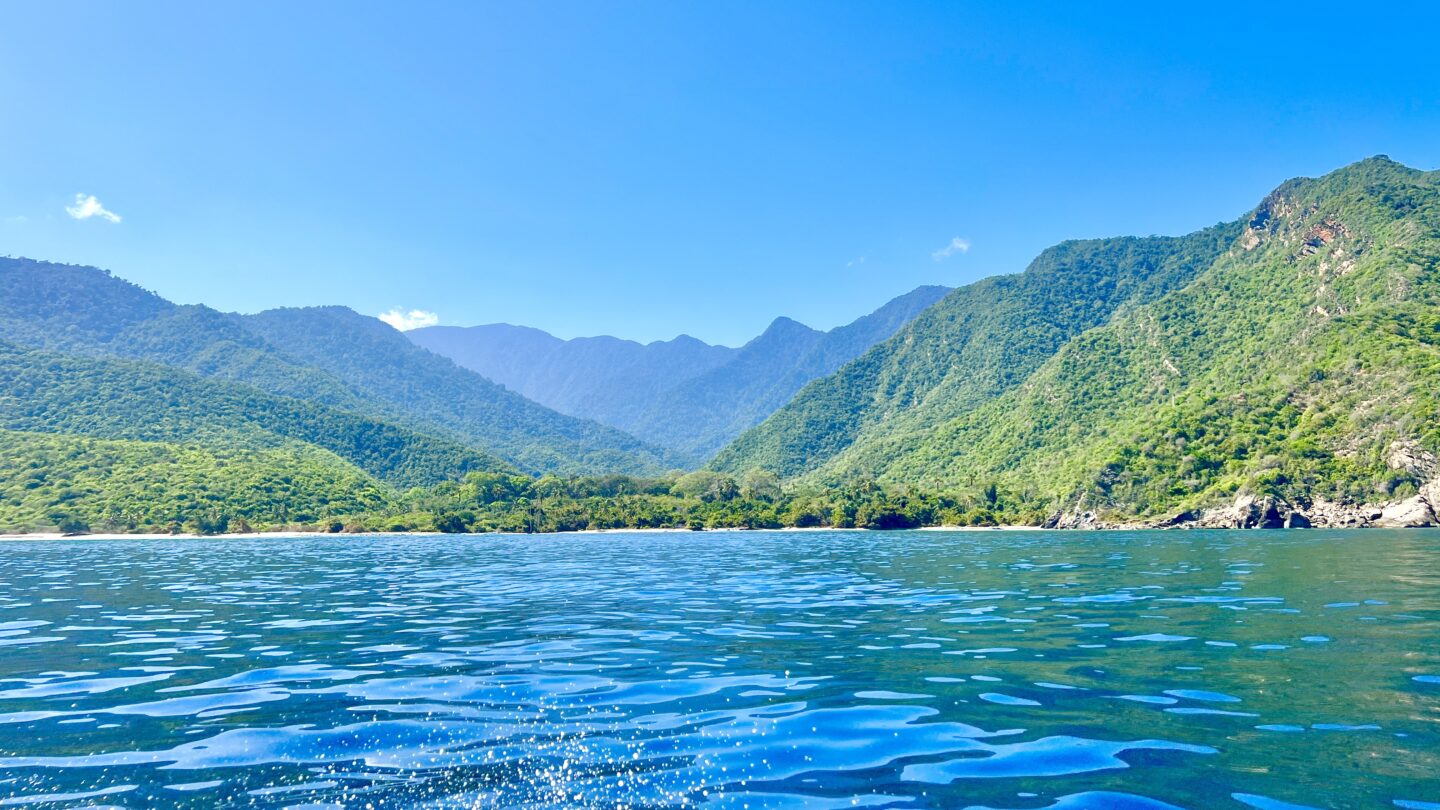
Marion shared plans to stop at secluded beaches after visiting Henri Pittier National Park, Venezuela’s first national park, established in 1937. The park is known for its rich biodiversity, including over 500 species of birds, making it a paradise for birdwatchers and nature lovers.
The crystal-clear blue waters and sandy beaches were breathtaking, even more so because they were virtually deserted. The few tourists we did see were locals, lending an authentic vibe to the paradise we found.
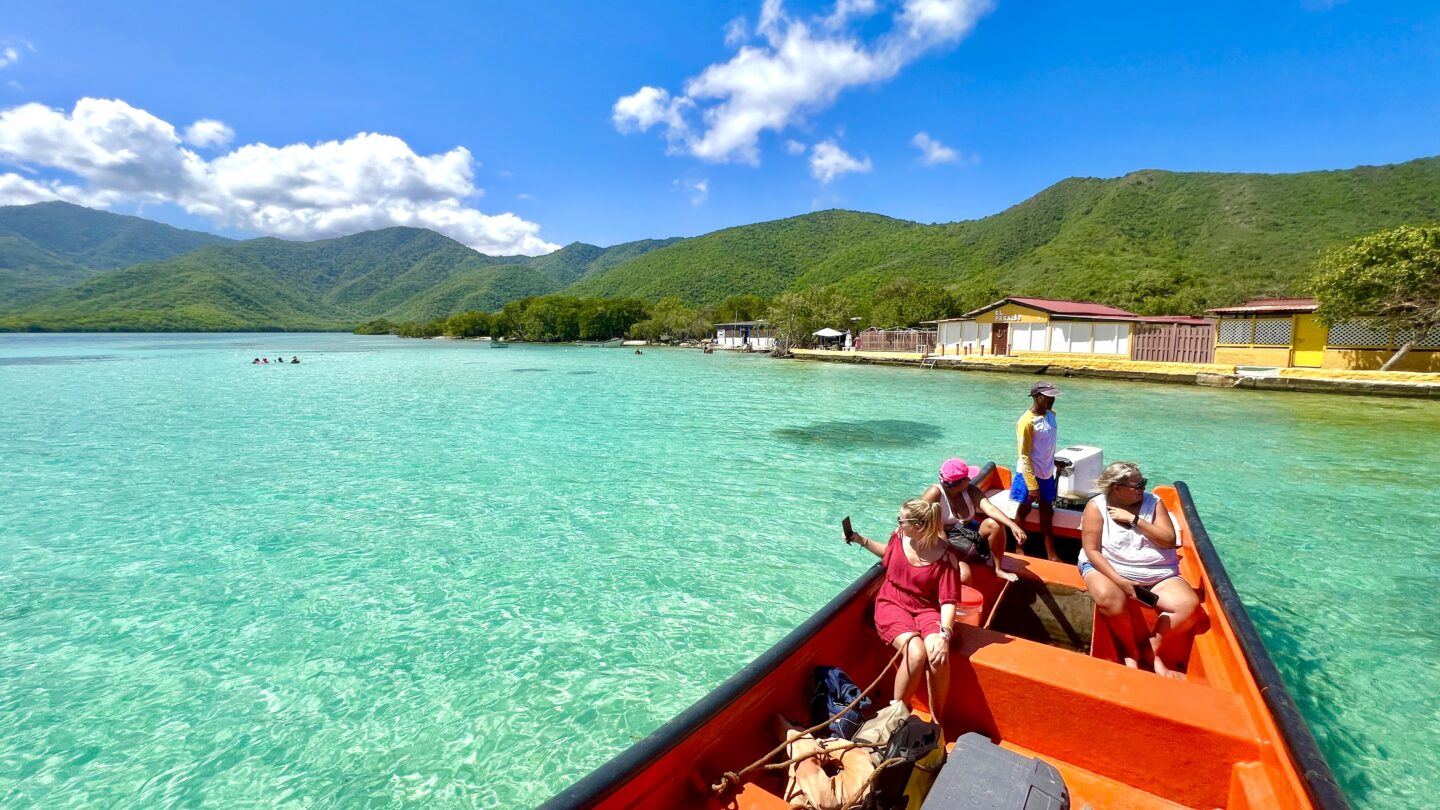
This trip was a standout in my travels. It wasn’t just about being a tourist; it was about experiencing life as a guest. The personal connections made everything more profound.
One highlight was meeting fishermen on our return to Choroni. Watching them haul in their catch was a spectacle of excitement and abundance—we even got two large fish to take back with us.
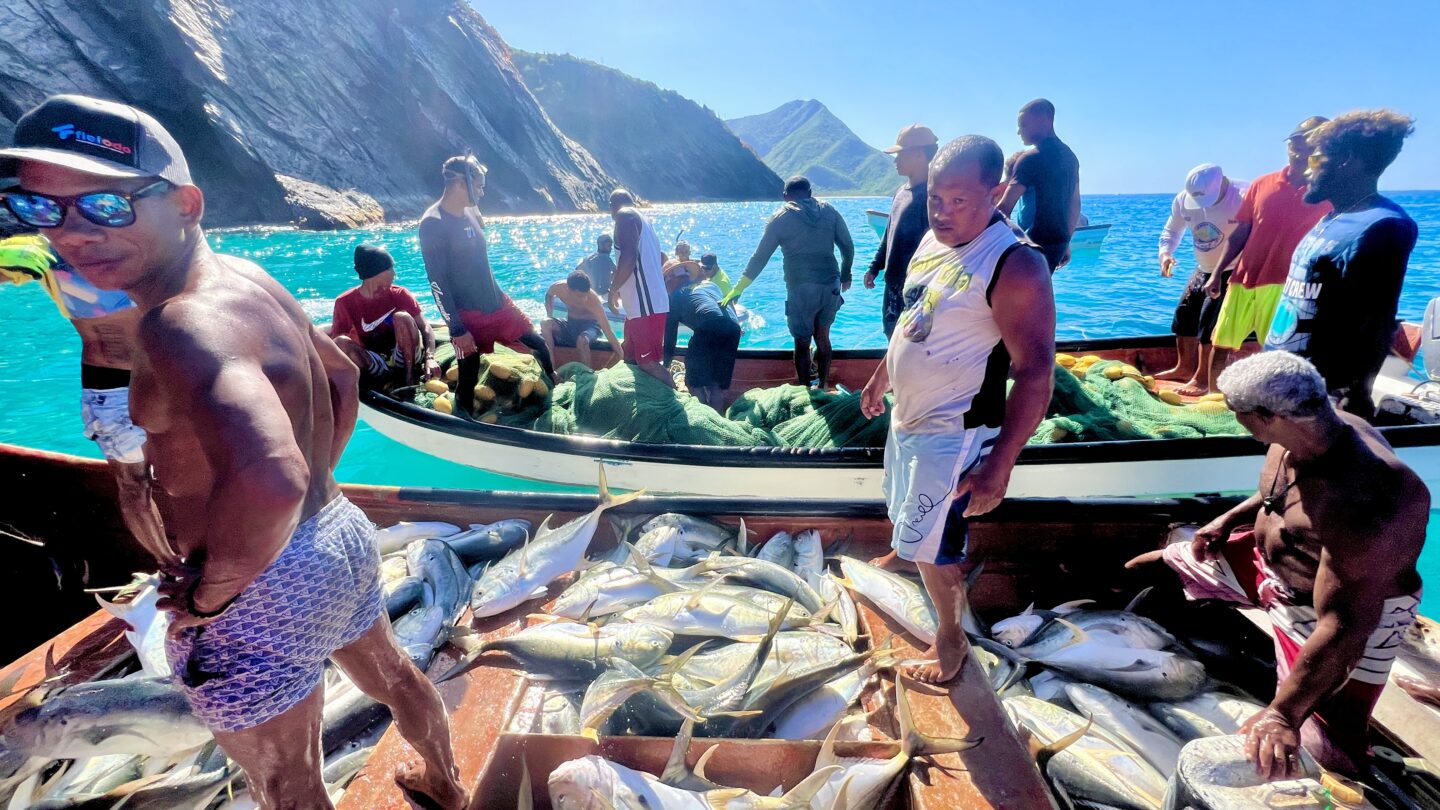
Another memorable part of the day was joining one of the boatmen for a hike to gather clams and shellfish. I feasted on the freshest sashimi right there on the beach, writing this in my beach fale in Samoa at 6 AM, recalling the simplicity and untouched beauty that’s becoming increasingly rare in today’s world.
I vividly recall waking up at dawn and making my way to Playa Grande. I ventured up a gentle rise to gain a better vantage point over the cove. Standing there, with the vast expanse of beach stretching out seemingly just for me, enveloped in such peace and quiet, was truly a magical experience.
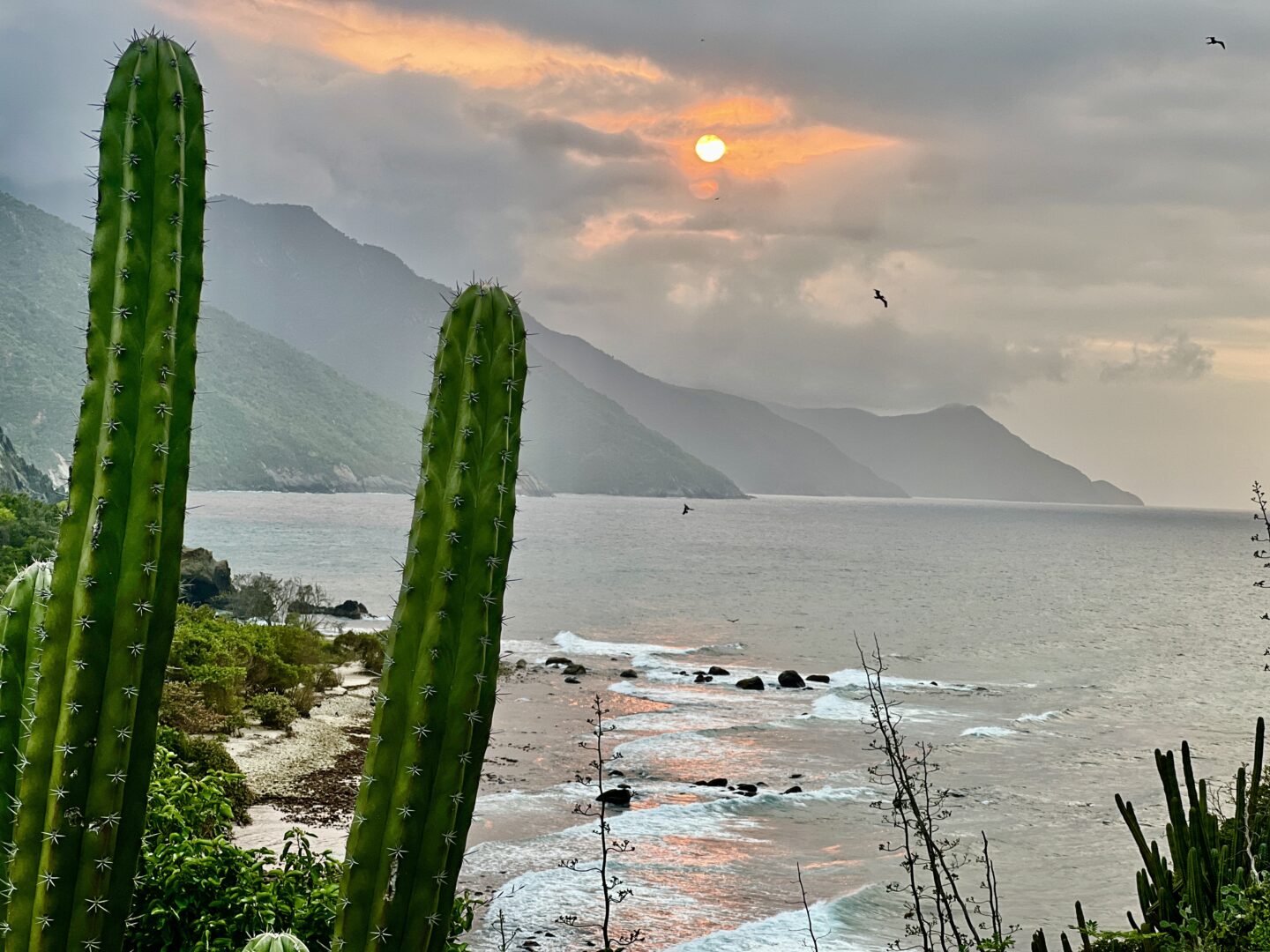
We actually met Marion who kindly took us out on this unforgettable boat trip the previous day, upon returning from another boat trip to Chuao, a neighbouring town renowned for producing some of the world’s finest cacao. It was fascinating to learn that the cacao harvested here makes its way to Italy and Switzerland—a delightful discovery for a chocolate-loving Malaysian based in Switzerland, tracing the origins of the Swiss chocolates back to their source in northern Venezuela.
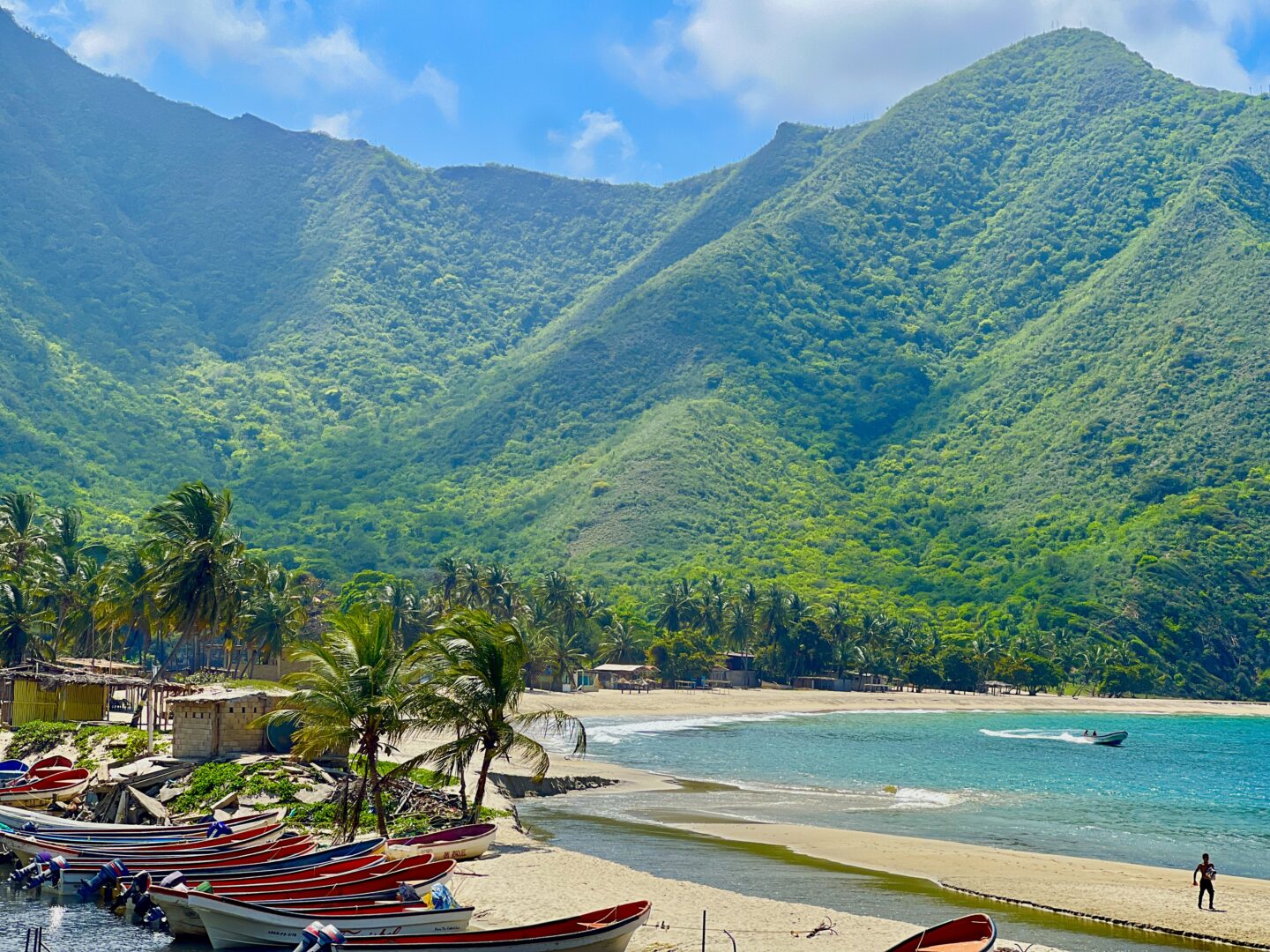
Strolling through the cacao plantation was a highlight. The workers generously offered us fresh, delicious cacao pods to taste, providing a firsthand experience of the raw ingredient behind some of the best chocolates in the world. Our visit culminated in a quaint village bakery, where we indulged in a scrumptious chocolate cake, the perfect end to our exploration of Chuao’s rich cacao culture.
We also enjoyed our time chatting with the locals whilst waiting for our boat ride back to Choroni.
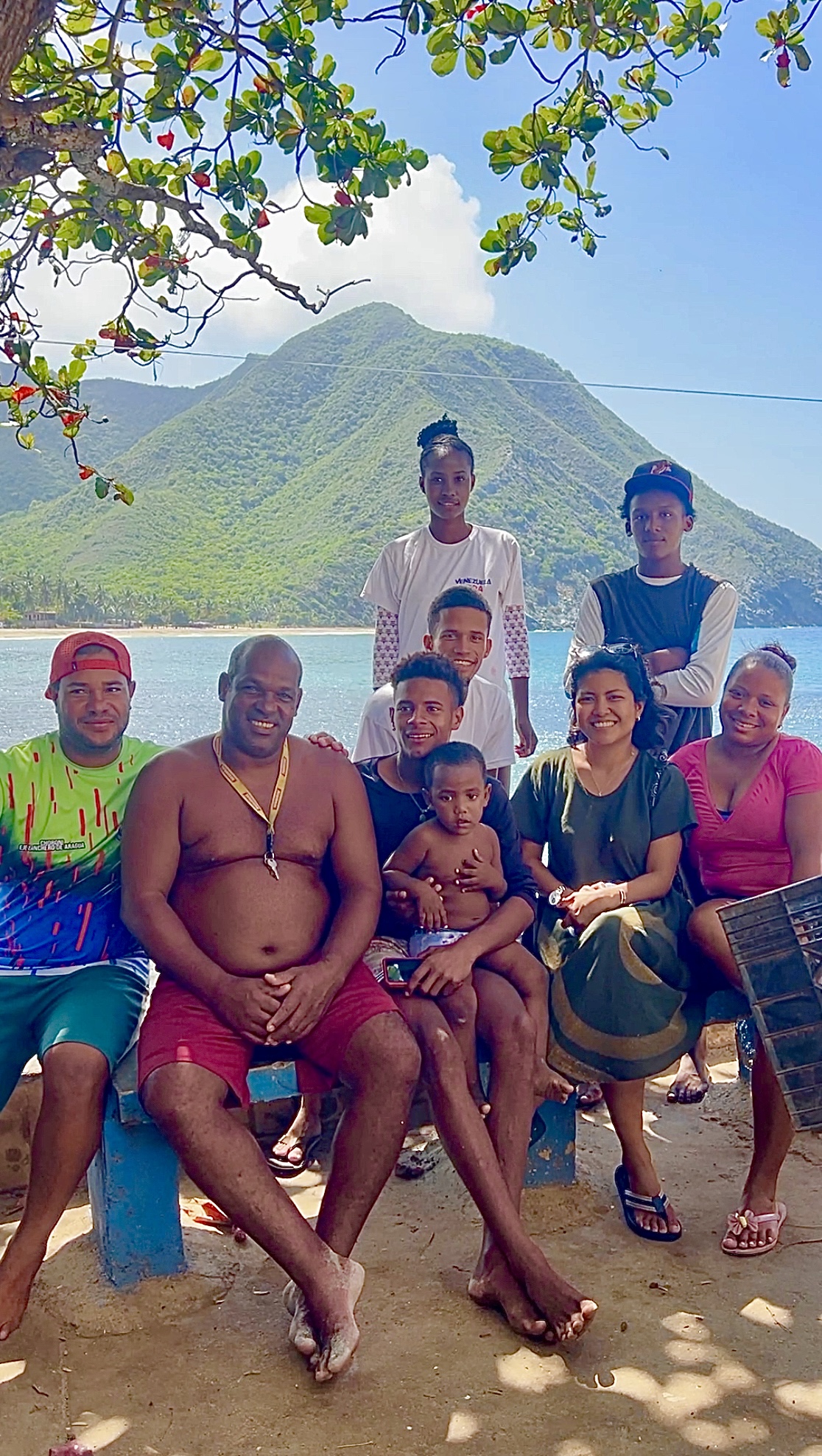
Choroni is more than just a destination; it’s a vibrant, living community where the warmth of its people complements the natural beauty. Traveling solo in Venezuela, especially as a woman, might seem daunting, but places like Choroni offer a safe and welcoming atmosphere, making it a must-visit for those seeking authentic and adventurous experiences.
